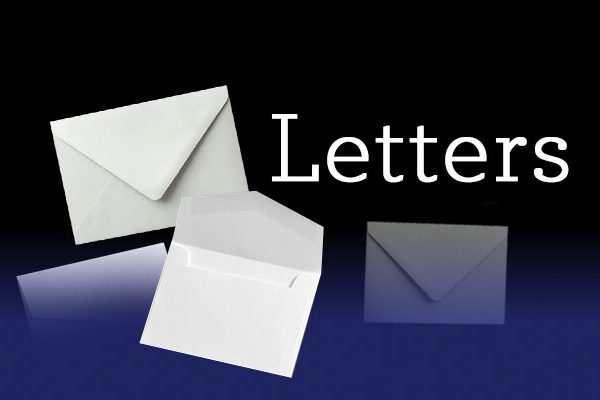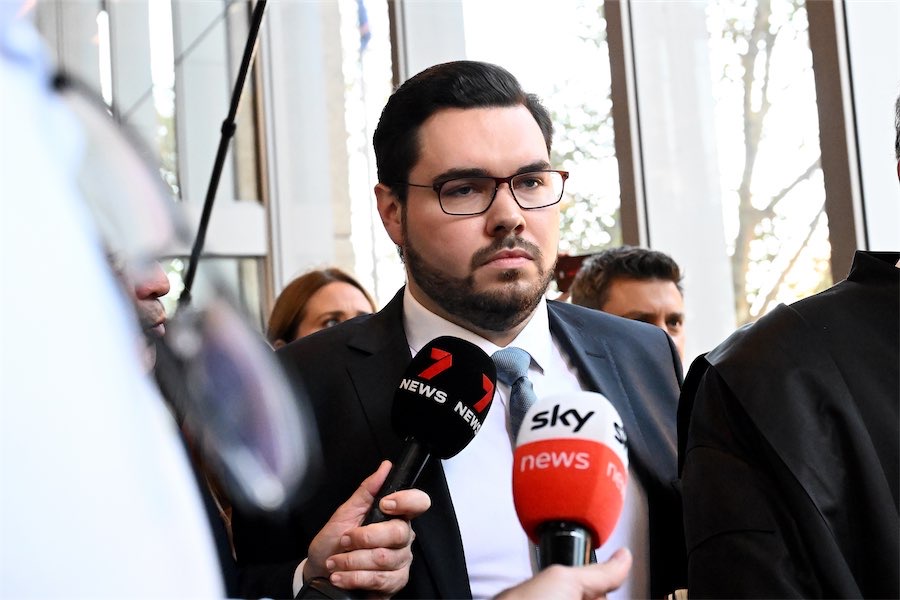Letter writer SUE DYER, of Downer, is looking for enlightenment from the ACT Integrity Commission about the extent to which snake oil was an embedded project ingredient at the CIT.
THE ACT Integrity Commission recently indicated that early findings on the Canberra Institute of Technology’s long engagement of an ambitious “complexity and systems thinking” proponent will be available soon.

Hopefully, this and other investigations that are also underway will reveal the quality of tuition and advice that was delivered to all targeted staff, the extent of follow-up implementation, plus assess how well the project was monitored and evaluated over time for both expected and unintended on-the-ground results.
With luck, investigators might have sought highly independent expert advice to assist analysis of the value of the training content that CIT foisted on its staff.
If systems thinking is about trying to define an ideal future or culture, how far did CIT move down the path of the complexity thinking component, about what was needed to move from “the now” into the future, even if what was ideal may never have been realisable?
And what is left now of this expensive project at CIT, besides possibly many cynical staff, a still-damaged reputation and a non-operational full-time CEO who has been on paid leave for almost 18 months?
Hopefully, the ACT Skills Minister, CIT and the investigations will soon provide clear answers about the project’s objectives and outcomes, because ratepayers and the broader public require far better perspectives on the millions CIT was willing to allocate and spend on this organisational thinking and executive-mentoring venture.
Some enlightenment about the extent to which snake oil was an embedded project ingredient would be welcome, too.
Sue Dyer, Downer
ABC allegedly biased and out of touch
THE ABC is publicly being questioned about its alleged impartiality, and in the past 18 months both the ABC radio listeners and ABC TV viewers have reportedly been declining at an alarming rate.
In a recent defamation trial between former commando Heston Russel and the ABC, it was criticised for its “shoddy and uncorroborated” reporting, resulting in Russel being awarded $390,000 in damages, one of many such cases lost to date costing the taxpayers millions in damages.
Maybe it’s time for the ABC to keep its “loose cannon” investigative reporters under close supervision and save taxpayers millions.
The public is now justifiably criticising the ABC for having an allegedly biased, out-of-touch and unrepresentative attitude at taxpayers’ expense to the tune of $1.1 billion a year.
In view of the above, one would have thought managing director David Anderson would have a lot to answer for. Instead, he was recently awarded a six-figure salary increase, augmenting his annual remuneration to $1.156 million!
Mario Stivala, Belconnen
First Australians ‘socially’ shackled
IAN Pilsner (Letters, CN October 15) says it’s ironic to refer to indigenous Australians being “figuratively shackled”. It sure is.
There are hundreds of early photographs showing indigenous people quite literally shackled together (and their captions seldom reveal the consequences).
Yet Ian regurgitates the old line about how “they” failed to emulate and adopt the industrial and social progress brought by Europeans.
He doesn’t mention, however, that our First Australians were also socially and intellectually shackled by the new arrivals who accepted Sir Joseph Banks’ and others oft-stated opinion that the natives weren’t worth bothering about.
He misses, or ignores, the obvious – that no half-thoughtful person disputes the benefits brought about by centuries of European development.
The problem is, the other part of our story keeps being denied; that for the vast majority of First Australians those benefits didn’t flow nearly so readily and arguably still don’t. And it’s not due to any inherent failings on their part.
Eric Hunter, Cook
Never mind the Liberals, Sue
IRONIC that Sue Dyer (Letters, CN November 15) wants the ACT Liberal Party to be much more honest and transparent.
Has she not seen how the ACT Labor Party and their “puppets”, the Greens, have been anything but transparent and truthful in their dealings with local issues.
The $5 million CIT stitch up, the “takeover” of Calvary hospital, the loss of our AAA credit rating, the destruction of green space in Canberra, the continued push from Chief Minister Andrew Barr to inflict his style of living on everyday Canberrans, the list goes on.
Ian Pilsner, Weston
Way forward is clear, get on with it!
ROBERT Macklin’s column on the history of insurance was a good read (“Climate change will cook the insurance industry”, CN November 16). However, his conclusion, that the insurance industry cannot be saved from the “ravages of climate change” is pessimistic and smacks of “doomism”.
Climate denial is no longer scientifically tenable, so another strategy is to argue that nothing can be done about climate change, and climate action is meaningless.
While climate change is arguably the biggest problem facing humanity, it can be combatted by replacing fossil fuels with renewables.
The Insurance Council of Australia’s Climate Change roadmap, “Towards Net Zero and a Resilient Future”, takes a positive view and provides guidance for the industry on the role it can play in the decarbonisation of the Australian economy.
The way forward is clear. We just need to get on with it.
Ray Peck, Hawthorn, Victoria
The word’s in the dictionary
JANINE Haskins (Letters, CN November 23) says she’s offended by my use of the term “druggie” in my letter (CN November 16).
I am sorry she lost her daughter to drugs, but the term “druggie” is in the “Oxford Dictionary” and defined as: “A drug addict or habitual user of drugs”.
I have met many people on drugs and one I worked with in the public service told me it was because he was a “druggie” in his youth that he would never have job prospects, because the drugs had destroyed his brain. He was a lovely intelligent man who openly told people he had been a “druggie”.
Vi Evans, via email
EVs have ‘no measurable effect’ on global warming
THE story “Cheap EV named Car of the Year” (CN, November 23) would be good news for the makers and marketers of electric vehicles.
Many people who want to see more action on reducing emissions to fight climate change probably also regard it as good news. If only the latter were true.
A team of scientists, including climate and IT experts, and leading technicians at the highly regarded Massachusetts Institute of Technology has developed a complex and sophisticated, but very powerful, climate change modelling program that handles input of numerous variables ranging from fuel types, proportion of renewable energy; proportion of green space relative to paved areas and buildings; thermal efficiency of buildings, especially apartment blocks; and the proportion of electric vehicles (EVs) to internal combustion engine (ICE) vehicles.
The modelling consistently produces two very pertinent results. Reducing the use of fossil fuels, beginning with coal, is easily the most effective means of reducing global heating; but the proportion of EVs to ICE vehicles has no measurable effect on global warming.
However, the news is not all bad: EVs in the urban environment are very effective in reducing the volume of health-threatening pollutants in the atmosphere, especially those from diesel-powered vehicles.
EVs have an important role to play in the world’s cities, perhaps no more so than in “car-addicted” Australia (and Canberra?).
Dr Douglas Mackenzie, Deakin
One weekend ranger for North Canberra
IT was a very compelling letter (CN November 23) from Rebecca Marks on wildlife road kill.
I was compelled to kill off my first kangaroo on a country road in my late teens. A few since (and a cat). One (off Antill Street) being a fatally injured ‘roo being terrified by an off-lead dog.
Another was on the Monaro Highway at night. A huge buck was hit by the car in front of me. Like Ms Marks, I had to stop. Its left eye, looking straight at me, as I delivered the death blow.
The presence of kangaroos is a wrenching risk when travelling on our country and suburban roads and prisoners of conscience never forget the necessity of perversely delivering compassionate release from the pain of a terrible, slow death.
I did wait one afternoon for the ranger to attend and finish off a kangaroo caught in a fence (Mt Majura). Never again will I wait. He was too long getting there.
Our lousy Labor government had one ranger rostered on for the entire north Canberra on a weekend.
Christopher Ryan, Watson
Who can be trusted?
In a world of spin and confusion, there’s never been a more important time to support independent journalism in Canberra.
If you trust our work online and want to enforce the power of independent voices, I invite you to make a small contribution.
Every dollar of support is invested back into our journalism to help keep citynews.com.au strong and free.
Thank you,
Ian Meikle, editor





Leave a Reply